Archaeology
-
 Humans
HumansPrehistoric people may have used light from fires to create dynamic art
When brought near flickering flames, prehistoric stone engravings of animals seem to move, experiments with replicas and virtual reality show.
-
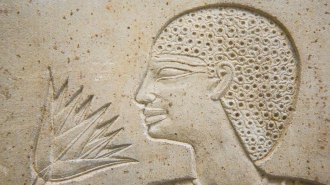 Archaeology
ArchaeologyAncient ‘smellscapes’ are wafting out of artifacts and old texts
In studying and reviving long-ago scents, archaeologists aim to understand how people experienced, and interpreted, their worlds through smell.
By Bruce Bower -
 Particle Physics
Particle PhysicsMuons spill secrets about Earth’s hidden structures
Tracking travel patterns of subatomic particles called muons helps reveal the inner worlds of pyramids, volcanoes and more.
-
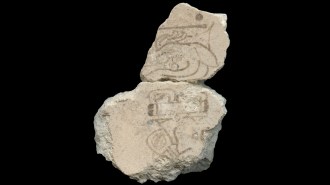 Archaeology
ArchaeologyThis hieroglyph is the oldest known record of the Maya calendar
Plaster fragments with the markings date to at least 200 B.C. and indicate that the calendar system, still used today, might be centuries older.
By Anna Gibbs -
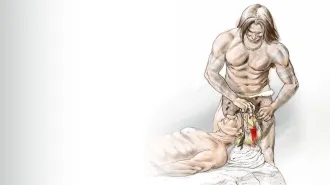 Anthropology
AnthropologyNorth America’s oldest skull surgery dates to at least 3,000 years ago
Bone regrowth suggests the man, who lived in what’s now Alabama, survived a procedure to treat brain swelling by scraping a hole out of his forehead.
By Bruce Bower -
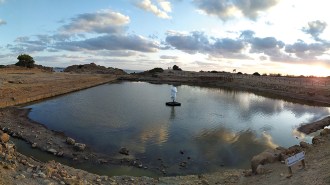 Archaeology
ArchaeologyAncient seafarers built the Mediterranean’s largest known sacred pool
The Olympic-sized pool, once thought to be an artificial inner harbor, helped Phoenicians track the stars and their gods, excavations reveal.
By Bruce Bower -
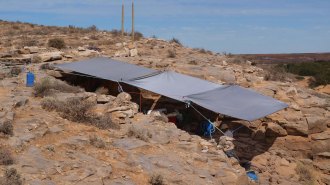 Archaeology
ArchaeologyAncient Homo sapiens took a talent for cultural creativity from Africa to Asia
Excavations at two sites continents apart show that Stone Age hominids got culturally inventive starting nearly 100,000 years ago.
By Bruce Bower -
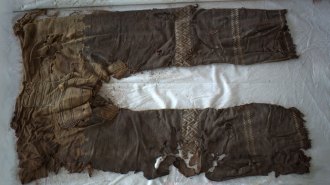 Archaeology
ArchaeologyThe world’s oldest pants stitched together cultures from across Asia
A re-creation of a 3,000-year-old horseman’s trousers helped scientists unravel its complex origins.
By Bruce Bower -
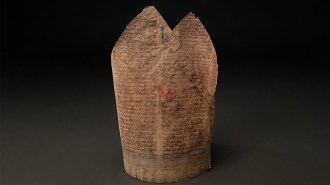 Archaeology
ArchaeologyA technique borrowed from ecology hints at hundreds of lost medieval legends
An ecology-based statistical approach may provide a storybook ending for efforts to gauge ancient cultural diversity.
By Bruce Bower -
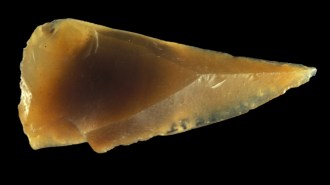 Archaeology
ArchaeologyHomo sapiens may have reached Europe 10,000 years earlier than previously thought
Archaeological finds in an ancient French rock-shelter suggest migrations to the continent started long before Neandertals died out.
By Bruce Bower -
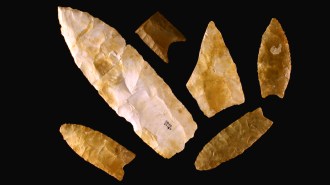 Archaeology
Archaeology‘Origin’ explores the controversial science of the first Americans
A new book looks at how genetics has affected the study of humans’ arrival in the Americas and sparked conflicts with Indigenous groups today.
By Bruce Bower -
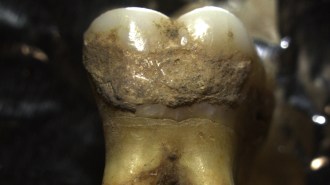 Archaeology
ArchaeologyA taste for wild cereal sowed farming’s spread in ancient Europe
Balkan groups collected and ate wild cereal grains several millennia before domesticated cereals reached Europe.
By Bruce Bower